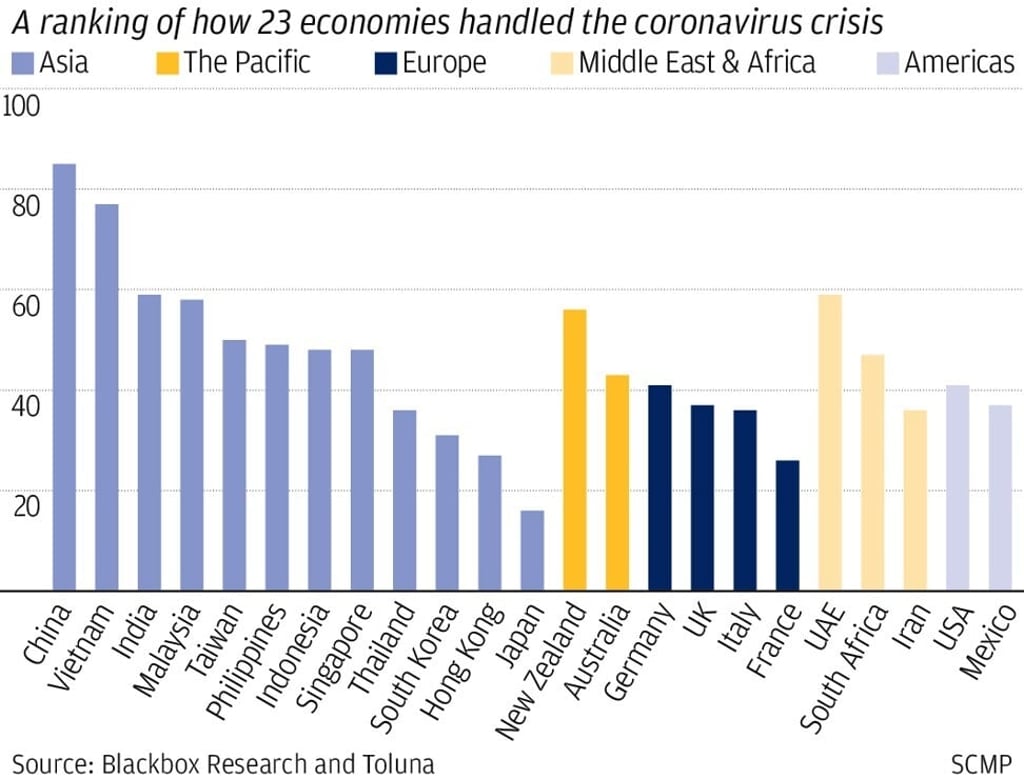From Hong Kong to Britain, governments ranked poorly for their response to Covid-19
- Survey of 23 economies finds ‘major cracks’ in self-belief across the Western world
- China, Vietnam and India have impressed with their responses to Covid-19, while Hong Kong and Japan languish at the bottom

When it came to overall scores – a measure taking into account four measures of national political leadership, corporate leadership, community and media – Asian societies again led the pack, with only seven economies scoring more than 50 out of 100.
These were among the findings by Singapore-based independent pollster Blackbox Research and consumer intelligence platform Toluna, which surveyed 12,592 respondents from 23 economies between April 3 and 19. The respondents were interviewed via an online panel, aged between 18 and 80 and two-thirds of them had a tertiary level education.
David Black, founder and chief executive of Blackbox Research, said mainland Chinese were “exceptionally satisfied” with their government’s approach. He attributed this to how China was now in the recovery phase, even while infections continued to mushroom elsewhere. “[This] gave a sense that China has handled the crisis well,” he said.
